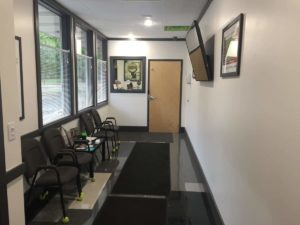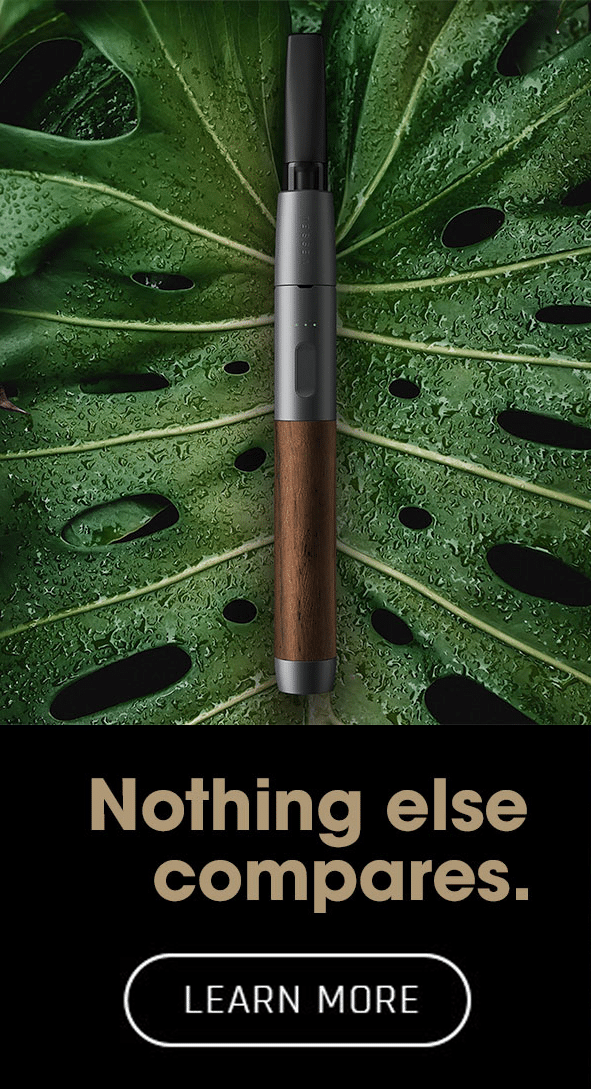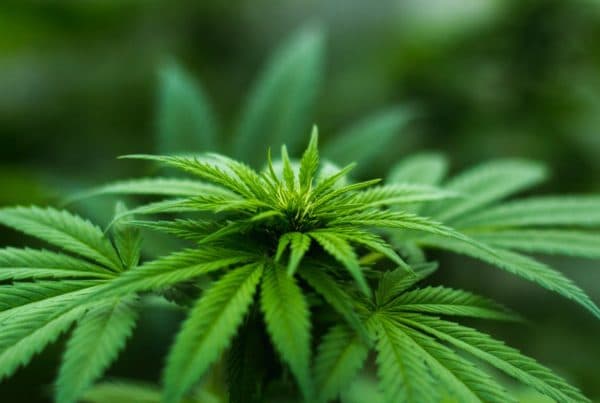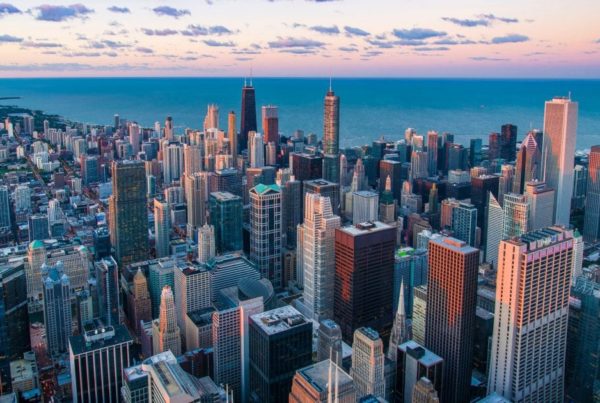Medical Dispensary vs Adult-Use: What’s the Difference
It’s important to understand the difference between a medical dispensary and an adult-use (recreational) shop. Here’s what you need to know.
Keyword(s): medical dispensary
You heard that new states legalized marijuana, but where can you get it? Do you have to go to a medical dispensary, or can you go to an adult-use shop?
The medical benefits of marijuana led many medical dispensaries to open in the past. Now, recreational shops get the name “adult-use” from the assumption that they’re selling marijuana for recreational use by adults.
These shops will open in recently legalized states over the next few years. Inform yourself on the regulations in your state before then.
Today, we’ll go over the differences between a medical dispensary and an adult-use shop. Prepare yourself for when they open.
Let’s get into it!
Atmosphere
When you imagine a marijuana shop, you probably imagine a “chill” space with Bob Marley posters and Rastafarian colors. This relaxed side of cannabis culture, however, is far from the dispensary or shop experience.
 Check-In and Waiting Room
Check-In and Waiting Room
In both kinds of shops, you’ll have to check in upon entrance. You’ll have to present documentation (which we’ll discuss in detail later) to an employee.
The employee you interact with up front will be like a receptionist in a medical dispensary. They’ll take your documentation and enter your information into their system.
In an adult-use shop, this is more of a security guard, there to make sure you’re of legal age and not trying to start any trouble.
In a medical dispensary, you stay in a waiting room after this check-in. When a budtender becomes available, they’ll take you into the main room to discuss your cannabis needs.
In an adult-use shop, your wait won’t be as long. Since these shops offer more “stop-and-go” service than a personal consultation, a budtender will free up faster and take you out of a shorter line instead of a waiting room environment.
Professional Atmosphere
In case the waiting room didn’t tip you off, dispensaries have an atmosphere similar to a doctor’s office. They’re slightly more relaxed than a medical space, but they’re still there to serve a medical function.
Everything is professional and polished, and the employees function with discretion and consultation in mind.
Adult-use shops can be less clinical but still maintain a professional atmosphere. Since they’re controversial and highly regulated, they are usually polished and organized.
The adult-use atmosphere is a cross between a cigar shop and a pharmacy. It’s not entirely medical, but it’s still selling a controlled substance.
Instead of consulting with a budtender on what best suits your needs, many times you’ll just tell them what you want. It’s a more transaction-based experience than in a medical dispensary.
Budtenders
Budtenders are the people who make recommendations and process the sale of marijuana. Like bartenders, budtenders can range from highly trained to barely knowledgable.
Qualifications
There are no legal regulations for budtenders at this time. Dispensaries and adult-use stores must use their own discretion in setting requirements.
Adult-Use
For an adult-use store, the requirements are usually thin. Customer service skills are the most important since they’ll be interacting with customers on a choice that can be intimidating.
Adult-use budtenders also need some background on the subject of cannabis, although this varies greatly from budtender to budtender. Since they’re making recommendations for recreation, they don’t need to know which strains treat which symptoms.
The budtender will have to fit a dress code fitting to the store’s atmosphere. That’s about it for adult-use shops, though.
Medical
In a medical dispensary, budtenders serve a pivotal role. Although they don’t need a legal certification, many medical dispensaries want budtenders to complete training programs.
These programs provide them information on products and medical conditions that they’ll need to properly advise people on. Since their function is to advise people on symptom relief, they need the knowledge to back them up.
They also need to know the science behind how marijuana affects the body. Some customers want symptom relief, but don’t want the “high” that comes with marijuana.
Budtenders must know the balance of ingredients that can strike what the customer wants.
Budtenders in medical dispensaries must also maintain a professional appearance to match the medical atmosphere.
Availability
In a medical dispensary, budtenders are there to work one-on-one with customers. If it takes 30 minutes to match you up with the best product, that’s what they’ll do.
In an adult-use shop, budtenders serve to carry out your transaction. They might not have time to personally match you up with the best product.
Do your research ahead of time for an adult-use shop and know what you want. You can’t rely on a budtender to choose it for you.
Most adult-use shops offer a “menu” online, so you can browse their selection ahead of time. If you need help, come up with a few specific questions to ask a budtender.
 Trust Your Gut
Trust Your Gut
Since budtenders have no legally-mandated education, there’s no guarantee that they know what they’re talking about. Try to choose a dispensary or adult-use shop that you trust will vet their budtenders.
However, you never have to make a purchase once you’re in the store. If you don’t trust what a budtender is telling you, don’t make the purchase.
Ask for another budtender or find another store.
Taxes
Marijuana purchases are vulnerable to a number of taxes state by state. But, those taxes vary depending on medical or recreational use.
Both state and local governments can levy excise taxes, which are taxes on a specific type of purchase. They can specify excise taxes further for either recreational or medical marijuana.
Some states levy this as a percentage or the sale or a flat tax on each ounce sold. They can get as specific as different per-ounce taxes for flowers versus leaves.
You also have to pay sales tax, potentially at the state and local level, on these purchases.
Medical marijuana often has much lower or non-existent taxes compared to recreational marijuana. That means you might pay a lower price at a medical dispensary.
Documentation
You can’t buy marijuana, medical or recreational, without the proper documentation. You should check the requirements in the state of purchase, but here are some general guidelines.
Medical Documentation
Medical dispensaries require more documentation by far.
The simplest piece is your form of identification. You need a valid, unexpired form to prove that you are the person the rest of your documentation names.
You also need documentation medically prescribing the use of marijuana to you. This documentation varies greatly from state-to-state.
In some, all you need is a letter from a doctor prescribing medical marijuana. This letter/prescription can be valid for up to one year, but you must renew it after that period.
In other states, you need a medical marijuana card. This card essentially proves that you have the doctor’s recommendations necessary without having to carry them around.
Each state has its own regulations for getting a medical marijuana card. For example, here’s how to get a card in Michigan.
Some dispensaries require you to bring both a doctor’s recommendation and a medical marijuana card. The first step to getting either of these is having one of the qualifying conditions.
Again, qualifying conditions vary state-by-state. Here are most of the basic conditions, but you should do research to see if yours qualifies in your state.
Medical marijuana is typically prescribed to those over 18 years old. However, a doctor may prescribe it to someone younger if they have a debilitating condition and parental permission.
Requirements for obtaining a medical marijuana card are often stricter for those under 18, however.
Adult-Use Documentation
The documentation for adult-use stores is much more relaxed than at a medical dispensary. All you need is a form of identification that proves you’re at least 21 years old.
This ID must be valid and unexpired. Most people use their license, but you can also use your passport.
Record Keeping
Don’t let it surprise you if the medical dispensary or adult-use store you visit keeps a record of you and your purchase. Since marijuana is a controlled substance, a lot of stores want a record of who is buying what.
A medical dispensary keeps a record to improve your experience. If a particular strain of marijuana helped your symptoms more than another, they want to know to make better recommendations in the future.
You might also work with different budtenders during each visit. Instead of recounting your experience with each strain or product, they can view a convenient record.
A medical dispensary might also keep a record of your documentation. That way, you can bring in the minimum amount of documentation for later visits.
Record keeping at adult-use stores varies. If anything, they’ll hold on to your identification until your transaction is complete to ensure you don’t cause trouble.
If you’re skeeved out by the record keeping, you shouldn’t be. Dispensaries aren’t keeping records to share or rat you out.
Most of the time, records just serve as resources so the budtenders can offer better recommendations.
Plus, many states limit the amount of marijuana you can buy. Records help you keep track of that.
Tips for Visiting a Medical Dispensary or Adult-Use Store
We have a guide for your first visit to a dispensary, but here are a few quick tips for a successful visit.
Do Your Research
Find all the possible information before visiting a medical dispensary or adult-use store.
Do some preliminary research into what you want to buy, even if you plan on having a budtender assist you. Since budtenders’ knowledge isn’t regulated, it’s important to inform yourself, too.
Then, research dispensaries and stores in the area. Which ones seem legit and offer what you need?
You want to find a place that does its business according to the law and hires reputable budtenders.
You also need to research the laws and regulations of your state. What’s legal, and what do you need to do to keep it that way?
Don’t only research documentation and purchasing laws. Research where you can take and smoke your marijuana.
If you’re traveling between states, research the legality of bringing your marijuana with you.
Bring Cash
Most dispensaries and adult-use stores don’t take debit or credit cards. They’re not trying to be inconvenient, though.
Most major card companies don’t want to associate with these purchases. Marijuana is not federally legalized, so the card companies see it as dicey water.
Make sure you have enough cash to cover the base price and the taxes.
Prepare
In addition to bringing proper payment and researching, you need to prepare for the rest of the experience.
Purchasing marijuana takes time, especially at a medical dispensary where you have to wait for a budtender. Don’t try to come in right before they close.
Make sure you have your documentation with you. Trying to convince the employees to sell without your documentation is a waste of both your time.
Be Respectful
Be respectful of the budtenders and other customers. This isn’t a sketchy drug deal–it’s a professional transaction. Treat it that way.
In a medical dispensary, give others their privacy. They’re dealing with medical conditions they might not want you eavesdropping on.
Come to the budtenders with some questions in mind, but don’t ask them to diagnose anything. They can only tell you what, in their experience, has seemed to treat various symptoms.
They’re not doctors, so they can’t legally “prescribe” or claim one type treats a specific symptom.
In an adult-use store, respect the time of the budtenders and other customers. Budtenders aren’t there to work specifically with you. They’re happy to answer a question or two, but don’t hog their time.
Also, respect others’ privacy by keeping your phone away. Some places even have rules against phones.
Wrapping Up
The biggest difference between a medical dispensary and an adult-use shop? Dispensaries exist to treat medical conditions, and adult-use shops don’t.
If you live in a state with both and you don’t have a medical condition, don’t visit a medical dispensary. Adult-use shops will give you more of the experience you’re looking for.
If you have more questions about dispensaries, contact us! We’re happy to answer your questions.
https://quantum9.net/puff-puff-pass-weed-etiquette-for-the-smoke-circle/
https://quantum9.net/how-long-does-weed-stay-in-your-system/
https://quantum9.net/what-is-the-difference-between-indica-and-sativa/







